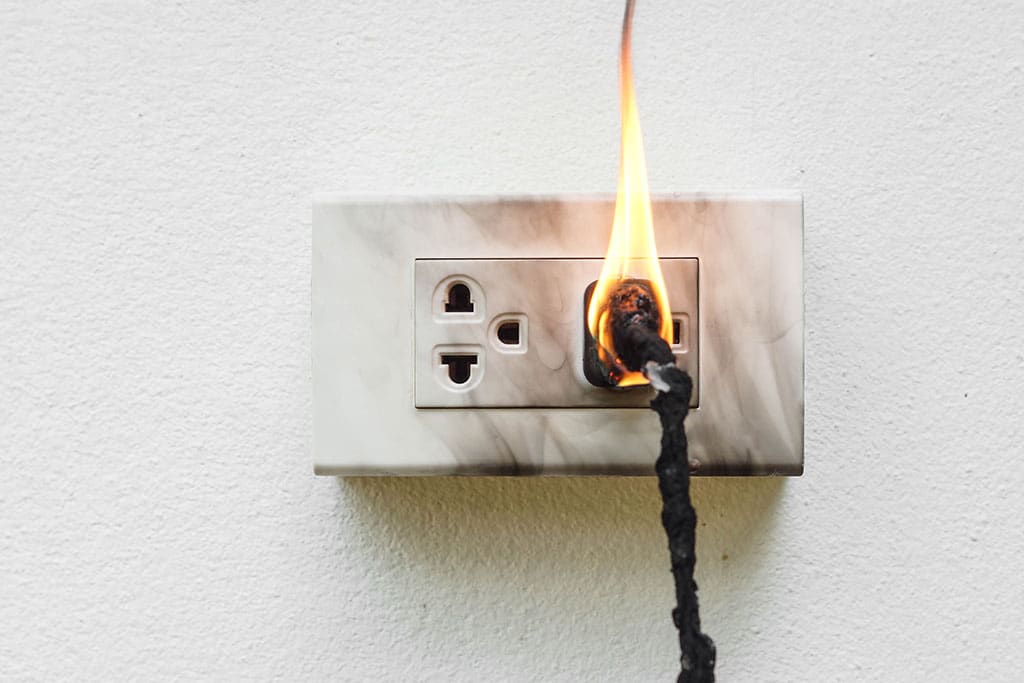
Electricity is the backbone of modern living, powering everything from your lights and appliances to your heating and cooling systems. But when something goes wrong with your home’s electrical system, it can pose serious risks—ranging from power failures to electrical fires.
As a Denver homeowner, it’s crucial to recognize early warning signs of electrical problems before they become dangerous or costly. In this guide, we’ll outline the most common signs of electrical issues, the potential risks of ignoring them, and when to call a professional.
At Bell Plumbing, Heating, Cooling & Electrical, we’ve been serving Denver homeowners since 1926. If you suspect an electrical problem in your home, our expert electricians in Denver are here to help!
Before we dive into the warning signs, let’s take a quick look at how your home’s electrical system works.
Your home’s electrical system starts with power from the utility company, which enters your home through a service panel (breaker box). From there, it is distributed through circuits to power your outlets, lights, and appliances. A well-maintained system should operate safely and efficiently, but over time, wear and tear, faulty wiring, or overloaded circuits can cause problems.
If your circuit breakers trip often, it’s usually a sign of an overloaded circuit, faulty wiring, or a failing breaker. While occasional trips are normal, frequent ones could indicate a more serious underlying problem.
Do your lights flicker when you turn on an appliance? This could mean your electrical panel isn’t supplying enough power or that there’s faulty wiring in your home.
A burning odor near outlets or the breaker panel is a red flag. This could indicate overheating, melting wires, or an electrical fire hazard—turn off power and call an electrician immediately.
If your outlets or switches feel warm, this could be a sign of loose wiring, electrical overload, or faulty components. Heat buildup in an electrical system is dangerous and should be checked right away.
Electricity should run silently—if you hear buzzing, humming, or crackling from your breaker box, outlets, or switches, it could indicate loose connections or faulty wiring.
A small shock when plugging in a device isn’t normal. This could indicate improper grounding or faulty wiring, both of which pose a safety risk.
If a specific outlet suddenly stops working, it might be a tripped breaker, a GFCI reset issue, or a deeper wiring problem that requires professional attention.
Unusually high electricity bills could mean your system isn’t running efficiently. Faulty wiring, outdated appliances, or hidden electrical issues could be wasting power without you realizing it.
Electrical problems should never be ignored, as they can lead to:
If you notice any of the signs above, it’s important to call a professional right away. Electrical issues can be unpredictable, and attempting DIY repairs can be extremely dangerous—not to mention against Denver’s building codes in many cases.
Your home’s electrical system plays a crucial role in keeping your family safe and comfortable. Recognizing early warning signs of electrical issues can help prevent dangerous situations and costly repairs.
At Bell Plumbing, Heating, Cooling & Electrical, our licensed electricians in Denver have been serving homeowners since 1926. Whether it’s a minor repair or a full electrical upgrade, we ensure your home’s electrical system is safe, efficient, and up to code.
If you suspect electrical problems in your home, don’t wait! Contact us for expert electrical repair and troubleshooting in Denver. Our team is ready to help—call us today!
We’re ready to answer your questions or schedule your appointment, call now or book online!
